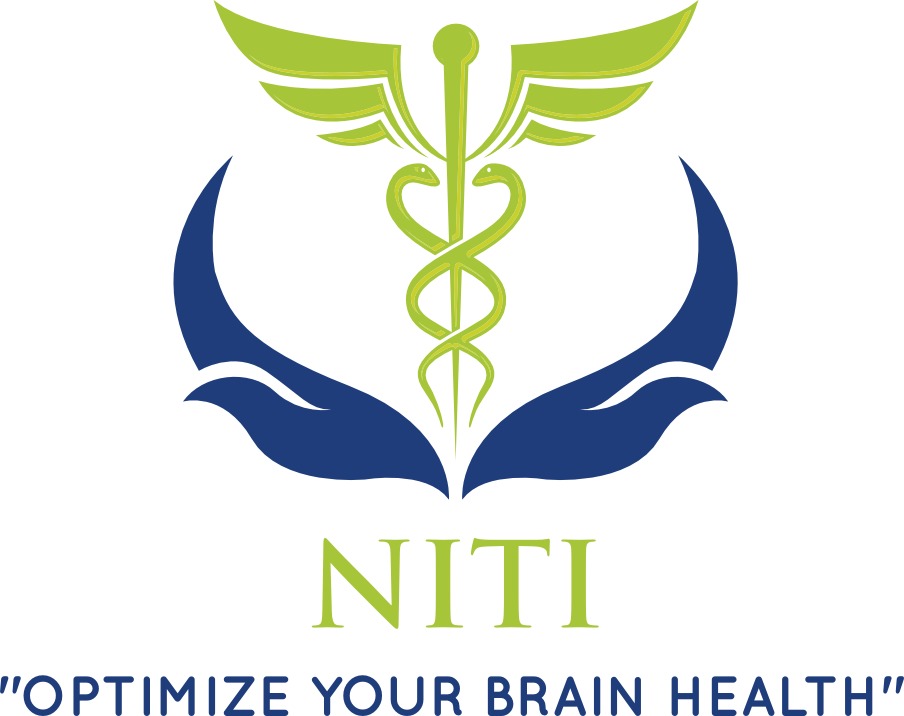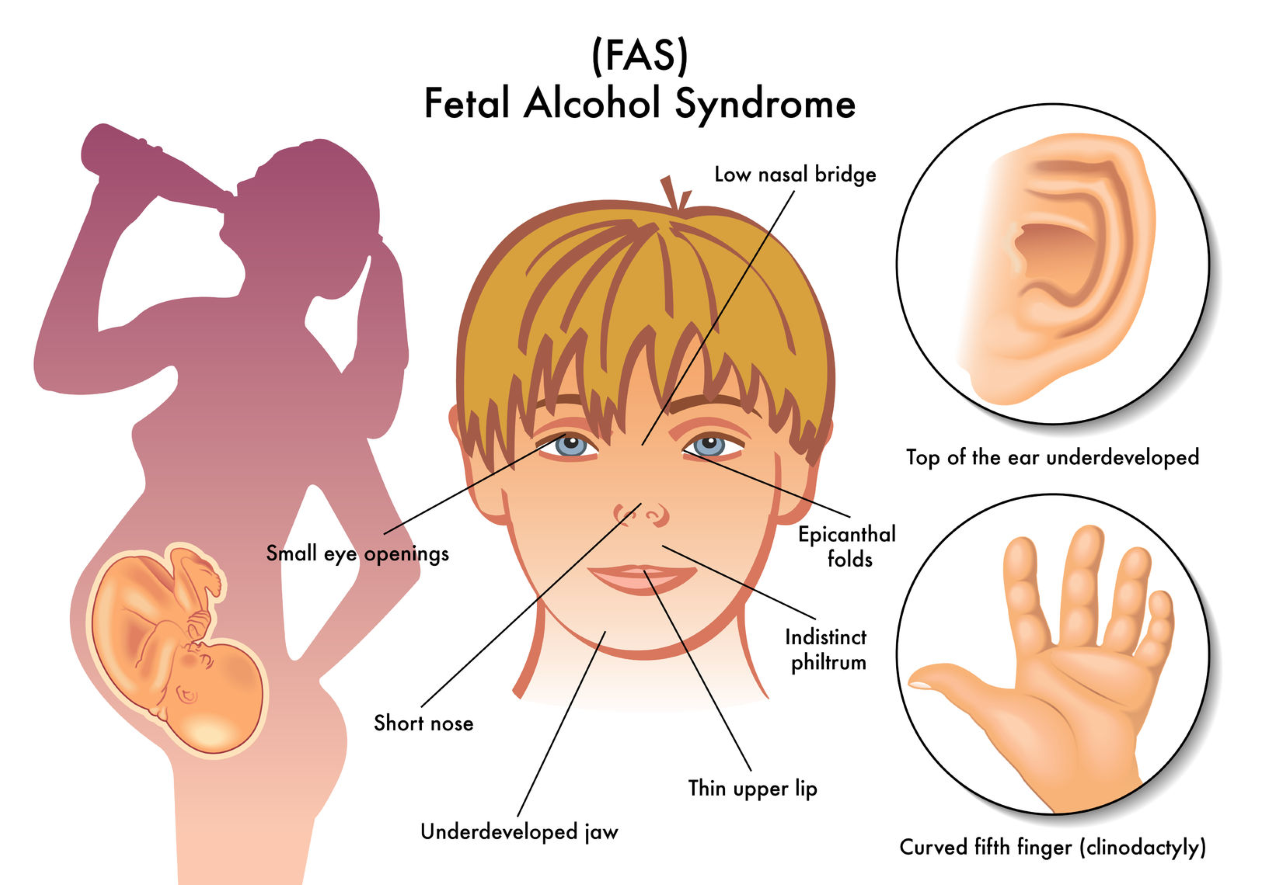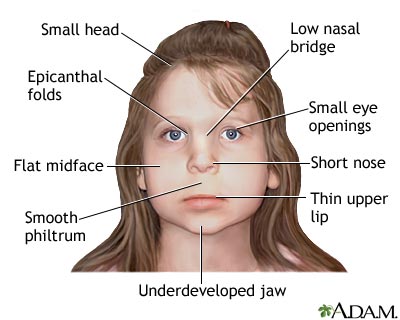FASD
FASD is an invisible condition that is very difficult to diagnose and even more difficult to treat. It is an organic brain damage that results from prenatal exposure to alcohol.
QEEG assessment can assist in identifying and understanding the underlying primary dysregulated brain wave patterns that could be the cause of secondary and tertiary behaviors of FASD.
In our experience our unique integrated treatment approaches have been very effective in working with individuals with FASD.
What we have found at NITI with FASD individuals:
On QEEG:
- Low amplitude abnormalities and coherence abnormalities.
- Sleep abnormalities,
- Sensory integration abnormalities, difficulty with transitions
- Emotional dysmaturity, emotional lability, altered sense of self
- Rigidity of focus, impulsivity
- Executive functioning problems
- Generalized anxiety
- Narcissistic traits
- Difficulty with auditory and visual processing
Fetal Alcohol Spectrum Disorder
What I have found in treating individuals with FASD
- Low amplitude abnormalities and connectivity (coherence) problems
- Sleep disturbances
- Sensory dysregulation, difficulty with transitions
- Generalized Anxiety
- Auditory and or visual processing abnormalities
- Rigidity of focus
- Executive functioning abnormalities
- Emotion lability – sense of self, hypervigilance, emotional rumination
- Low frustration tolerance
At NITI we start with a free consultation as we would like to spend time to understand your situation and discuss how our customized integrated approach can help alleviate your symptoms of anxiety and life long suffering. We will discuss and show you our treatment modalities so you can make an informed decision.
Our treatments start with EEG (eyes open & eyes closed) recording followed by discussing the findings of a 60 page QEEG report by our BCN (Board Certified Neurofeedback Therapist) clinician to understand the underling primary issues in the brain that may be causing the symptoms of anxiety. This assessment along with other psychological assessments help our clinician to create a customized treatment protocol.
If do not have to quit taking medication to participate in out treatments. In fact, we will work with you and your physician to decrease the needs of medication as your treatment progresses and you start
to feel better. Our goal is to make you learn skills and re-train your brains dysregulated pathways so that you will not rely on medications and instead lead a worry free life.
Through brain training and using neuroplasticity, a person can change their thinking habits and diminish anxiety symptoms. The best part is that one’s your brain is optimally functioning and you have learnt effective coping skills the improvements sustain after you stop treatments.
Please ask our clinicians to share with you pre and post treatment QEEGs to show how effective our treatments are. If you are still not convinced then we can let you speak with our satisfied clients and seek their experiences.
Call today to make a free consultation appointment 815-931-0047
We do accept most major insurance PPO plans.
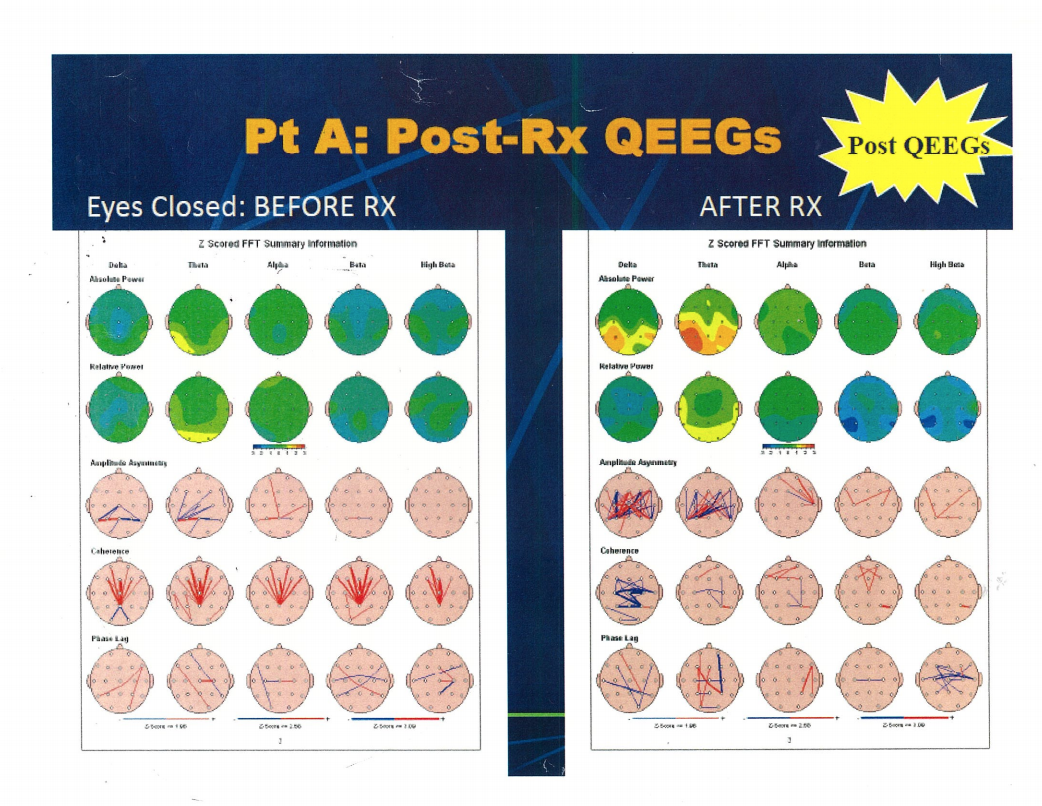
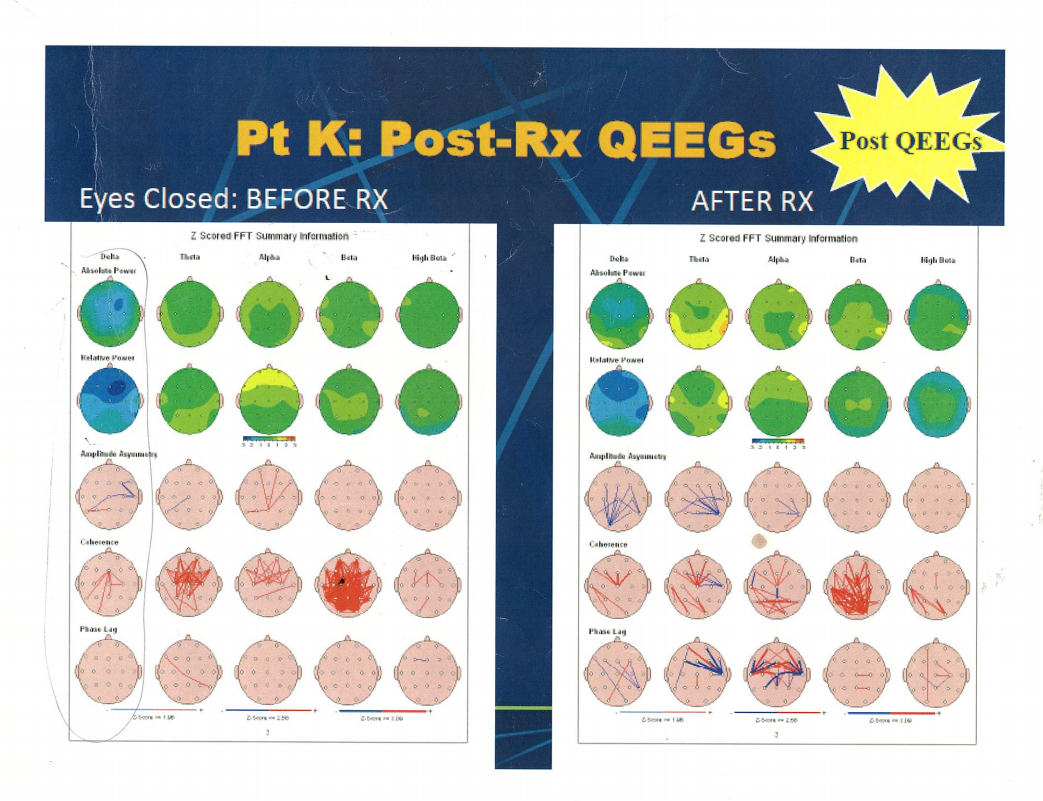

Basics about FASD
-
Fetal alcohol spectrum disorders (FASDs) are a group of conditions that can occur in a person whose mother drank alcohol during pregnancy. These effects can include physical problems and problems with behavior and learning. Often, a person with an FASD has a mix of these problems.
Cause and Prevention
FASDs are caused by a woman drinking alcohol during pregnancy. Alcohol in the mother’s blood passes to the baby through the umbilical cord.
There is no known safe amount of alcohol during pregnancy or when trying to get pregnant. There is also no safe time to drink during pregnancy. Alcohol can cause problems for a developing baby throughout pregnancy, including before a woman knows she’s pregnant. All types of alcohol are equally harmful, including all wines and beer.
To prevent FASDs, a woman should not drink alcohol while she is pregnant, or might be pregnant. This is because a woman could get pregnant and not know for up to 4 to 6 weeks.
Signs and Symptoms
FASDs refer to the whole range of effects that can happen to a person whose mother drank alcohol during pregnancy. These conditions can affect each person in different ways, and can range from mild to severe.
A person with an FASD might have:
- Abnormal facial features, such as a smooth ridge between the nose and upper lip (this ridge is called the philtrum)
- Small head size
- Shorter-than-average height
- Low body weight
- Poor coordination
- Hyperactive behavior
- Difficulty with attention
- Poor memory
- Difficulty in school (especially with math)
- Learning disabilities
- Speech and language delays
- Intellectual disability or low IQ
- Poor reasoning and judgment skills
- Sleep and sucking problems as a baby
- Vision or hearing problems
- Problems with the heart, kidneys, or bones
Different terms are used to describe FASDs, depending on the type of symptoms.
· Fetal Alcohol Syndrome (FAS): FAS represents the most involved end of the FASD spectrum. Fetal death is the most extreme outcome from drinking alcohol during pregnancy. People with FAS might have abnormal facial features, growth problems, and central nervous system (CNS) problems. People with FAS can have problems with learning, memory, attention span, communication, vision, or hearing. They might have a mix of these problems. People with FAS often have a hard time in school and trouble getting along with others.
· Alcohol-Related Neurodevelopmental Disorder (ARND): People with ARND might have intellectual disabilities and problems with behavior and learning. They might do poorly in school and have difficulties with math, memory, attention, judgment, and poor impulse control.
· Alcohol-Related Birth Defects (ARBD): People with ARBD might have problems with the heart, kidneys, or bones or with hearing. They might have a mix of these.
The term fetal alcohol effects (FAE) was previously used to describe intellectual disabilities and problems with behavior and learning in a person whose mother drank alcohol during pregnancy.
In 1996, the Institute of Medicine (IOM) replaced FAE with the terms alcohol-related neurodevelopmental disorder (ARND) and alcohol-related birth defects (ARBD) Neurobehavioral Disorder Associated with Prenatal Alcohol Exposure (ND-PAE): ND-PAE was first included as a recognized condition in the Diagnostic and Statistical Manual 5 (DSM 5) of the American Psychiatric Association (APA) in 2013.
A child or youth with ND-PAE will have problems in three areas: (1) thinking and memory, where the child may have trouble planning or may forget material he or she has already learned, (2) behavior problems, such as severe tantrums, mood issues (for example, irritability), and difficulty shifting attention from one task to another, and (3) trouble with day-to-day living, which can include problems with bathing, dressing for the weather, and playing with other children.
In addition, to be diagnosed with ND-PAE, the mother of the child must have consumed more than minimal levels of alcohol before the child’s birth, which APA defines as more than 13 alcoholic drinks per month of pregnancy (that is, any 30-day period of pregnancy) or more than 2 alcoholic drinks in one sitting
Brain Mapping – FASD
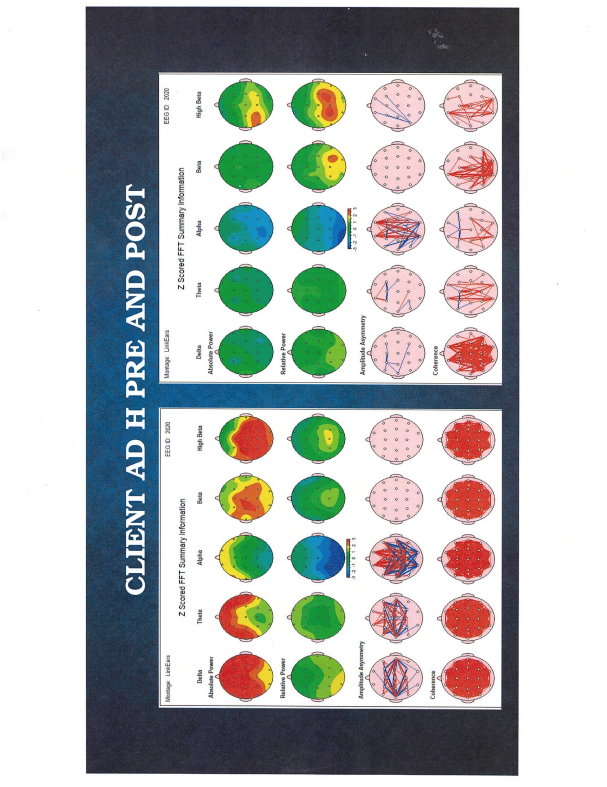
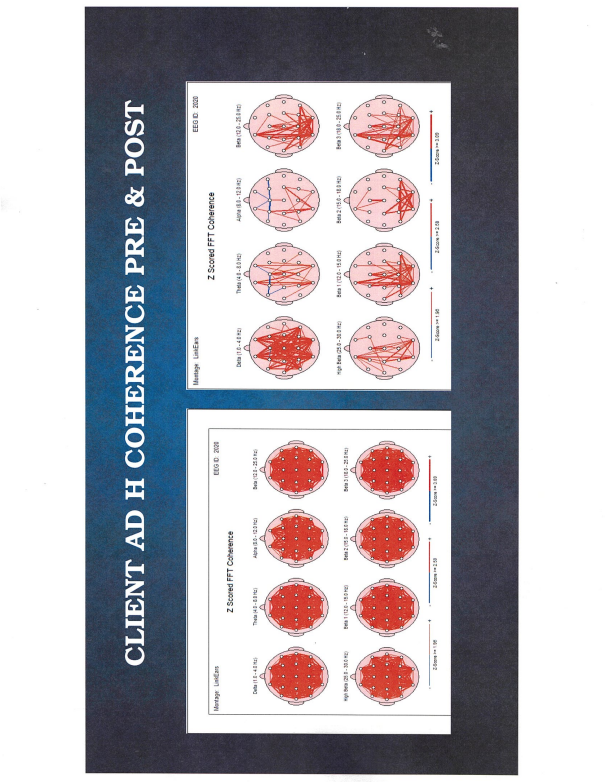

Session C6b – A Novel Integrated Approach in Addressing the Primary & Secondary Symptoms of FASD: The Relative Efficacy of QEEG Guided Neurofeedback & HRV Therapy with Physical Therapy to address Developmental Coordination Disorder (DCD) and Parent Consultation
Your Health Starts Here
If you think that you or someone you know may benefit from our treatments
please call for a free consultation at 815-931-0047
